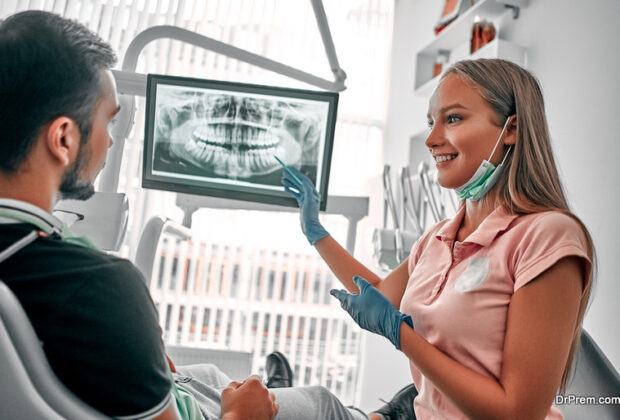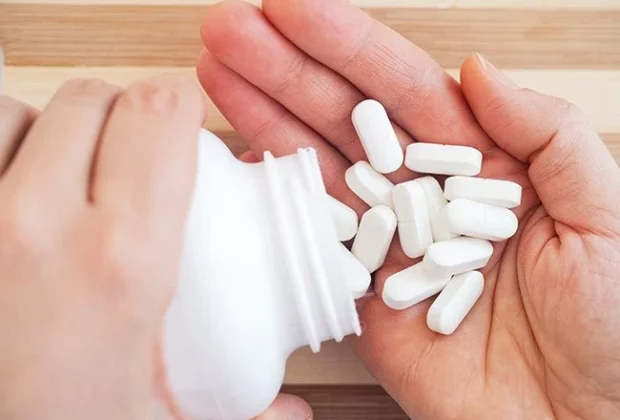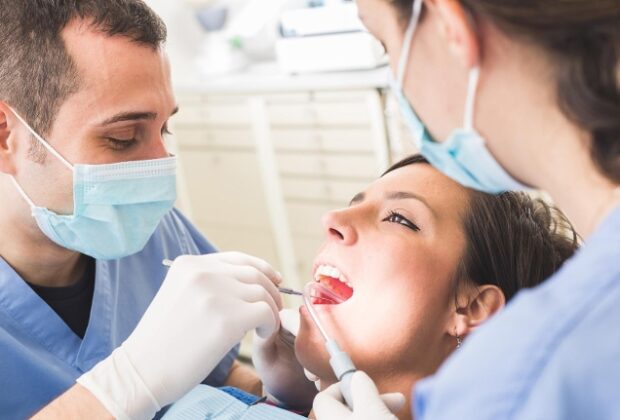Nursing is one of the most sought-after careers, even though nurses work long hours looking after sick patients. Despite the long hours and the workload, however, most nurses feel that their career is rewarding, and they enjoy high degrees of professional and personal satisfaction as they can help those who need assistance and make a difference in their local communities.
Watching a sick patient leave the hospital healthy and happy or getting a short thank-you message from the patient’s family makes nursing one of the most fulfilling career options. At the same time, this career comes with a lot of responsibilities, and nurses need specific abilities to be successful in their roles. Here is a look at some of the skills that can help nursing professionals better fulfill their roles as healthcare providers.
Empathy
Empathy is perhaps the most important skill that a nurse needs to be successful in this vocation. You will be dealing with patients who are sick or injured and may be experiencing the worst situations of their lives. These patients will be frightened, and their family members will be distressed. Therefore, you need to build a trusting bond with patients and their families.
Highly skilled and patient-centric nurses often put themselves in their patients’ shoes and use that as a way to assure patients and allay their fears. They provide the support that patients need so they can focus on getting better.
Physical and mental strength
To succeed in a nursing career, you need to take care of your physical and mental health. In certain settings, like hospitals, a nurse’s work can be physically demanding. They walk to different stations, check on patients in their rooms, lift and move patients, and give patients medications. This means nurses need to stay in good shape to be able to carry out their responsibilities without a problem.
Furthermore, nursing also puts you in an environment where you may frequently come face to face with trauma and tragedy. These experiences can be mentally taxing, so you need to build up your mental strength to handle the emotional demands of your job.
Critical thinking
Nursing is a fast-paced career, and anything can happen at any time. Therefore, critical thinking is an essential part of nursing. An emergency can crop up at any moment, and a good nurse is someone who can make quick decisions, stay calm and put the health of the patient first.
If you want to excel at nursing, you should be able to stay calm during emergencies and crises and think critically. This skill takes time to develop, and with the right training, experience and support from colleagues, you will be able to think quickly on your feet during a crisis.
Communication
A nurse needs to communicate effectively, not just with doctors and other nurses but also with patients. You need to remember that patients may be too sick or frightened to communicate with you. As a nurse, you are not just the main caregiver for your patients; you also need to advocate for them. You must be able to communicate with your patients to find out what else they need beyond the treatment and care they are receiving. That will help to improve the standard and quality of care patients receive.
As a nurse gains experience and advances in their career, communication skills become more important as they may have to counsel patients or provide healthcare advice. FNPs and NPs also diagnose patients, offer treatments and prescribe medication. Nurses require effective communication skills to help patients understand important information.
Adaptability
The healthcare industry is constantly evolving and changing. That means nurses need to adapt to changing situations. If you speak to nurses who have been working for several years, they will tell you that the nursing field has changed from what it was when they first started their career. You will also experience this over time, and being able to adapt to changes will make you more successful in your nursing career.
Many new diseases can make an appearance without warning, or healthcare policies may change. You will also be faced with new treatment protocols and equipment. The key to being a successful nurse is to embrace these changes so you can easily work and provide the right care to your patients.
Teamwork
Nurses do not work alone. They are often part of a multi-disciplinary team, so you need to know how to be a team player. You should also understand how your team’s actions and decisions may affect others, including you.
Teams of healthcare professionals and nurses have the same goals: to provide good patient care that improves outcomes and offers patients the support they need to get through whatever conditions they are experiencing. To be a good team player, you will not only have to communicate well with the entire team but also be supportive and consider the impact of your decisions on your team.
Ethics
To have a successful nursing career, nurses need to be ethical. They must put the interests and needs of their patients ahead of everything else. When you are working as a nurse, you will not be under the constant watch of your supervisor. Even when no one is watching or supervising you, you should always work with integrity and avoid cutting corners.
Good nurses perform all tasks diligently and to the highest standard, regardless of how big or small the tasks are. Nurses need to constantly think about what is best for their patients and ensure that patients are always treated with respect and dignity.
Eye for details
Nurses always multitask when they are working. Not only do they have to care for their patients, but they also have to complete administrative and other essential tasks. Good nurses tend to be organized and have strategies in place that prevent them from making even the smallest mistakes.
Good nurses are observant and take note of everything happening around them ,as even something small or minor could adversely affect the patient and their treatment outcomes. If you are meticulous and observe things that other people tend to overlook or ignore, a career in nursing could be a good choice for you.
Confidence
Currently, the US is facing a shortage of primary care physicians. As a result, in many settings, nurses are responsible for primary care. This is a major responsibility. Nurses need to be confident and self-assured in their abilities to independently handle patient care.
A good nurse is not just confident about their abilities but also works to constantly improve their skills and knowledge. They realize that patients depend on them to make certain decisions, so they want to make calls that benefit their patients. Many nurses enhance their knowledge and skills with the help of training programs, additional classes and research papers. As a result, they are always confident at work and can make quick decisions for their patients’ care and well-being.
Leadership
Treating and caring for patients is just one aspect of nursing. Nurses often take on leadership roles as they gain more experience and advance through their careers. Some nurses become nurse managers who are responsible for an entire team of nurses, while others take on mentorship positions to help student nurses or those who have just received their nursing degrees. Through leadership roles, nurses work to create a caring, compassionate, and patient-focused environment in different settings.
Nurses who demonstrate leadership skills often find that their work as a nurse becomes easier. They can tackle difficult situations and make the right decisions without panicking. This helps them get noticed and increases the likelihood of promotions and career advancements. Depending on the level of their leadership skills, some nurses may take on management and executive roles in hospitals and public health departments.
Dedication and commitment
Nurses need to be dedicated to their work. You may have heard that nursing is a noble profession and that those who enter this profession are passionate about caregiving and helping sick and ailing patients. This means you will often find that for many nurses, their job does not feel like work in a traditional sense. Instead, they look at nursing as a vocation and lifestyle, where they are completely devoted and committed to what they do.
The nursing field requires a high level of commitment, as you will often put in long hours and provide care and support to people who might be suffering and at the lowest point in their lives. In addition, when you are not working, you may face a situation where a person needs help – and you should not hesitate to provide it.
When you become a nurse, you will always put other people’s health and well-being first, regardless of where you are. That is why nurses are highly respected and people turn to them when they need support and care.
Professionalism
As mentioned earlier, nurses are highly respected for the work they do. They are viewed as professionals, who provide support and care when people need it the most. When you become a nurse, regardless of your position, you always have to demonstrate high levels of professionalism. You can’t favor one patient over another or do anything that allows people to point fingers at you.
It is also prudent to remember that you need to conduct yourself with the utmost care, not just at work but also outside of the job. The way you behave outside of your workplace will have an effect on your employer’s reputation and can impact how people perceive nursing and healthcare. To be successful as a nurse, professionalism is a must.
Readiness to learn and upgrade knowledge
The field of nursing is constantly evolving thanks to new treatment techniques and equipment. Even after getting your BSN or MSN degree, your learning will never cease. Most successful nurses commit themselves to learning new things so they can be better at their jobs.
As a nurse, you should find time between your hectic work schedule to study and learn new things. Be prepared to take continuing education exams to show that you are aware of the latest developments in the healthcare industry and have the right skills and knowledge to provide the best quality of care to your patients. This will pay off over time as you advance in your career to more senior positions.
Why is nursing a rewarding career?
After seeing the long list of skills that nurses need to be successful in their careers, you may wonder whether it is a worthwhile profession. Nursing is a calling, and if you are committed to caring for people who need help, you will be happy in this career.
Nurses are always in demand, which means there is plenty of job security. Moreover, the pay is good; if you check the highest paying nursing careers, you will be surprised at the incomes that family nurse practitioners and informatics nurses can earn. However, for many nurses, this career path is also personally fulfilling and rewarding. Universities such as Carson-Newman offer online degrees to people who are looking to become a nurse or qualified nurses who wish to advance their career. These courses are 100% online, so you can stay in your full-time job and finish your degree.
Here are the top reasons nurses find this to be a rewarding career:
Making a difference: Although nursing is a physically and emotionally demanding field, it enables nurses to do meaningful work. Nurses support and care for people who are at the lowest or most vulnerable stage in their lives. They treat patients with respect and kindness, and with the right communication skills, they forge a caring relationship with their patients. Through their knowledge, expertise and care, nurses help sick and injured patients heal and recover, and that is emotionally rewarding. Nurses make a difference in the lives of other people when they need help the most.
Learning and growth opportunities: The field of nursing is never static or stagnant. Nurses always have opportunities to learn and train so they can be better at their jobs. After a nurse obtains basic qualifications and becomes a registered nurse, they can choose a career path that is right for them. Through further education and a master’s degree, nurses can choose to work in a variety of specializations, such as pediatrics, administration, ambulatory care, informatics, critical care, clinical research and much more. Some nurses also become nurse educators and teach at the collegiate level or focus on staff education in hospitals.
Teamwork: Most nurses work with other nurses, doctors, care managers and social workers to provide coordinated care and support to patients. Being part of a team that is made up of professionals with different areas of expertise and specialties can be extremely fulfilling. Teamwork enables nurses to learn and gain insights from other professionals. It is also an opportunity to put their skills to use and gain hands-on experience.
Job security: In the US, even before the COVID-19 pandemic, there was a shortage of nursing staff due to new entrants not keeping pace with the waves of retirements and a higher demand for healthcare among those who are aging and suffering from chronic diseases. According to the Bureau of Labor Statistics, the job outlook for registered nurses is bright, with employment projected to grow 6% between 2021 and 2031. There is a consistent demand for skilled nurses across the US, and training as a nurse will help you enjoy stable employment.
High levels of flexibility: Nursing is not a rigid career path. Nurses can choose where and when they want to work. Some nurses work full-time, while others work part-time. They can also choose to work in hospitals, colleges, home care or aging care. As a trained and qualified nurse, you can choose to be at the bedside of a patient, enter the field of research, become a nursing educator, or take up administration roles to ensure smooth operations of the facility where you work. Furthermore, you can work in urban, suburban, or rural areas, depending on where you want to work.
Work-life balance: While you will often hear that nurses work long and unsocial hours, they can maintain a good work-life balance. Nurses are not bound by traditional working hours because they work in shifts. Many hospitals and healthcare facilities allow nurses to choose their shifts so they can easily accommodate their other responsibilities. This enables nurses to still enjoy fulfilling personal lives, even when they are working in demanding jobs.
Good pay: The salaries that nurses earn depend on their experience, location, place of employment and several other factors. However, most trained and skilled nurses receive attractive salaries. This means they don’t have to worry much about their financial needs and can focus on providing the best standards of care and support to their patients.
Choose to become a nurse
Nursing can be a physically and emotionally demanding career path, but if you have the most essential skills, you will be successful. The key to acquiring the right skills to become a good nurse is to get the right training and education. As a qualified nurse, you will find that your career path has the potential to be rewarding, satisfying and fulfilling.
Read Full Article










Recent Comments